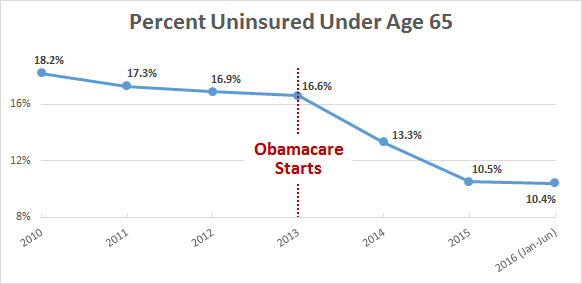As Republicans merrily head down their stated path of repealing Obamacare without bothering to replace it, here are the latest CDC numbers on the uninsured:

Let’s put that into raw numbers. There are currently 273 million people in America under the age of 65. If we abolished Obamacare and returned to the 2013 percentage of uninsured, 17 million people would lose health coverage.
And that’s optimistic. If Republican recklessness causes the insurance industry to abandon the individual market altogether (explanation here), the number of people who would lose coverage is somewhere in the range of 32-37 million. That’s represents 22 million people who are currently in the non-group insurance market plus another 10-15 million who benefited from Obamacare’s Medicaid expansion.
Repealing Obamacare makes a great campaign slogan, but now Republicans have to actually govern. Do they really want to be responsible for 17-37 million people losing health coverage? Really?















